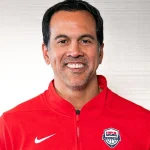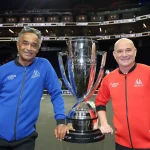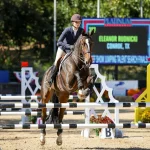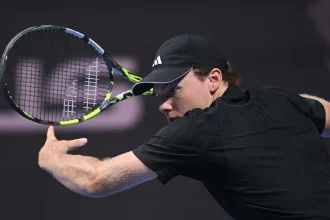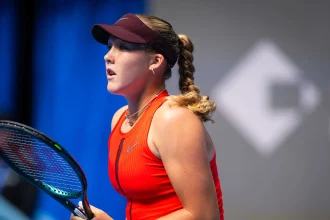Dennis Schroder, crowned MVP of EuroBasket 2025 and the 2023 World Cup, wasn’t always the confident leader fans admire today. Coach Kostas Flevarakis, who guided him during his formative years, shares an inside look at the journey of a talented but misunderstood teenager—full of doubt, mistakes, resilience, and pivotal moments that shaped a star.
When Germany hoisted the EuroBasket 2025 trophy in Riga, Schroder stood at the heart of it, MVP award in hand, his legacy cemented. To many, it was the natural continuation of his dominance after the 2023 World Cup. But for those who knew the skinny, fiery teen from Braunschweig, this rise wasn’t guaranteed.
One such person is Kostas Flevarakis. The Greek coach, who took over Germany’s Braunschweig team in 2012, recalls how he spotted potential in a restless 19-year-old Schroder, overlooked and underestimated until then.
“He was a kid who deserved a real chance,” Flevarakis said. “Before I arrived, nobody really believed he could become something special. His minutes were scarce, and even for his age, he deserved more.”
Without hesitation, Flevarakis gave Schroder a starting role in the tough Bundesliga league, pitching him against seasoned veterans like Tyrese Rice and Yotam Halperin. Despite his undeniable talent, Schroder was often treated like an outsider.
“I didn’t care about prejudices or opinions. I told him: ‘It’s up to you how far you go,’” the coach explains.
Schroder’s style—flashy ball handling, bold attitude, and an ever-present smirk—divided opinions, especially in basketball hubs like Greece and Spain. But Flevarakis insists it was passion, not arrogance.
“He wasn’t trying to provoke. He had a fire that makes opponents hate him but teammates love him.”
In just one season, Schroder blossomed, averaging 12 points and 3.6 assists by summer 2013. His breakout came in a key win over Bayern Munich, and a year later, he was picked 17th overall in the NBA draft by the Atlanta Hawks.
Behind the confident exterior was a young man searching for belonging. Growing up in Braunschweig, Schroder faced racism and rejection, often mocked for his Gambian heritage.
“All he wanted was to be accepted,” Flevarakis says. “That need shaped him deeply.”
Schroder’s father, Axel—his first mentor and NBA dream instiller—had passed away years earlier, leaving a void. Raised by his mother Fatou, Dennis carried both cultural pride and the scars of loss.
“When I met him, he and Daniel Theis were both frustrated,” Flevarakis recalls. “Theis eventually left, but Dennis’s agent asked me what my plan for him was. I told them: ‘Give him a meaningful role.’”
Schroder’s raw talent was evident: explosive pace, defensive tenacity, and a growing basketball IQ. But his emotional intensity required guidance.
“He made mistakes—normal for a teenager—but he learned. His psychology was key.”
Off the court, Schroder’s skateboarding and easygoing demeanor masked a fierce competitor hungry to prove himself.
“What you see isn’t always who he is,” Flevarakis notes. “Inside, he wanted to win and make his family proud.”
Germany’s recent golden run—from the 2023 World Cup to EuroBasket 2025—has been powered by Schroder’s leadership. The same fire that once made him difficult now fuels his greatness.
“The fire never left him; he just learned to channel it.”
Clutch moments—like decisive three-pointers against Spain or late drives versus France—showcase his ability to thrive under pressure, a trait always lurking beneath early doubts.
Looking back, Flevarakis beams with pride at Schroder’s achievements. Joining the ranks of legends like Sergei Belov and Toni Kukoc as a multiple MVP, his journey from an overlooked, misunderstood teen to Germany’s captain and most decorated modern player is remarkable.
“People don’t realize: for a point guard, it’s harder to build and read the game than for forwards or centers. Dennis had to master all that. And he did.”
Though his leadership style—fiery, vocal, sometimes divisive—still sparks debate, Flevarakis sees it rooted in the boy’s quest for acceptance and the battles he fought growing up.
“He needed someone to believe in him when few did. That’s what made the difference.”
Fans may view him as cocky or polarizing, but those close to him see vulnerability, growth, and unrelenting hunger.
“Never judge too early,” Flevarakis warns. “The kid everyone thought was too difficult became the one lifting the trophy.”



